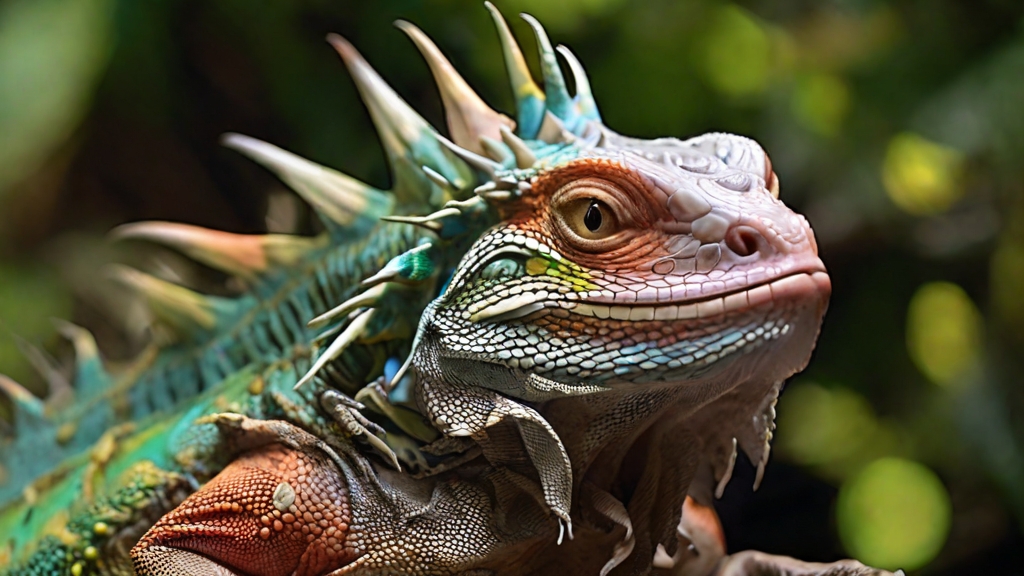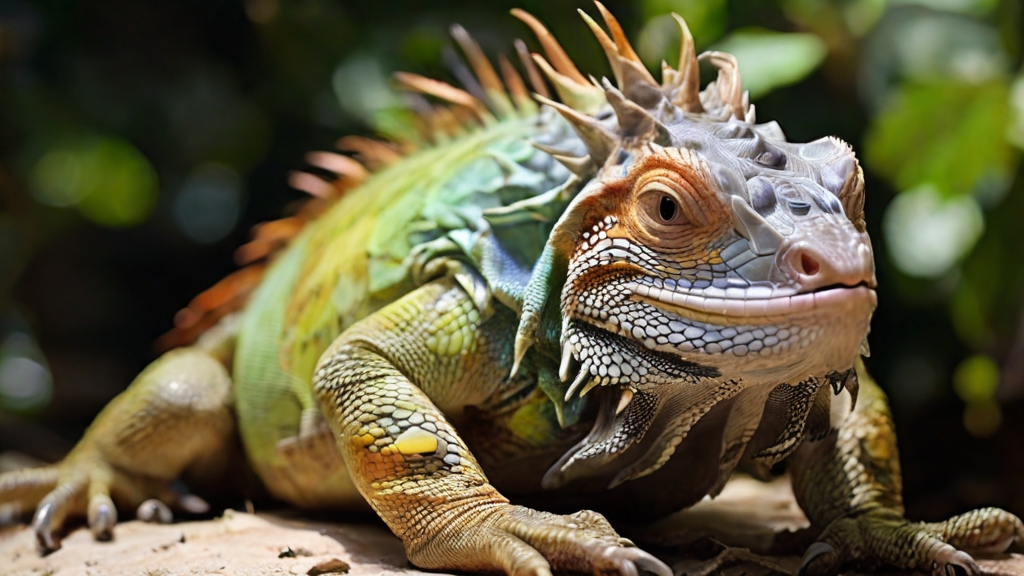Iguanas are fascinating reptiles that are native to tropical regions. Known for their vibrant colors and impressive size, iguanas are popular pets and are also found in the wild. It is important to understand their behavior and potential risks associated with them to ensure your safety around these creatures.
Understanding the Nature of Iguanas
Iguanas are generally docile creatures that prefer to avoid confrontation. However, they can become aggressive if they feel threatened or cornered. It is crucial to remember that iguanas are wild animals that have their own instincts and defense mechanisms. Understanding their behavior patterns can help minimize the risk of any potential harm.
Assessing the Potential Risks
While iguanas may not be inherently dangerous, it is important to be aware of certain behaviors that could lead to a potential risk. By understanding the warning signs, you can take appropriate measures to ensure your safety.
Common Iguana Behaviors to Watch Out For
Iguanas display certain behaviors that indicate they may be feeling threatened or aggressive. These include hissing, puffing up their body, lashing out with their tail, or displaying a defensive posture. It’s important to recognize these warning signs and give the iguanas space to avoid any potential confrontations.
Evaluating the Probability of Iguana Attacks
While iguana attacks are rare, there have been instances where individuals have been bitten or scratched by these reptiles. However, it’s important to note that such incidents are typically a result of provocation or mishandling of the iguana. By understanding and respecting their natural behaviors, the likelihood of an attack can be significantly reduced.
The Physical Threat: Iguana Bites and Scratches
One of the main concerns people have regarding iguanas is the potential for bites and scratches. Understanding the severity of these injuries and knowing how to deal with them is crucial for ensuring your safety.
Analyzing the Severity of Iguana Bites
Iguana bites can be painful, but they are rarely life-threatening. Their sharp teeth can cause puncture wounds, which may lead to infection if not properly treated. It is important to clean the wound thoroughly and seek medical attention if necessary.
Dealing with Iguana Scratches and Wounds
Iguana scratches are typically shallow and may cause minor bleeding. While they can be uncomfortable, these wounds usually heal on their own with proper care. Clean the wound with mild soap and water, apply an antiseptic, and cover it with a sterile bandage to promote healing.
Iguanas and Diseases: What You Need to Know
Apart from physical injuries, iguanas can also potentially transmit diseases. Understanding these diseases and taking preventive measures is essential for maintaining your health and safety.
Exploring Zoonotic Diseases Transmitted by Iguanas
Iguanas can carry zoonotic diseases, which are infectious diseases that can be transmitted from animals to humans. Salmonellosis is a common zoonotic disease associated with reptiles like iguanas. Symptoms include diarrhea, fever, and abdominal pain. It is important to practice good hygiene and wash your hands thoroughly after handling iguanas to prevent the spread of such diseases.
Preventive Measures for Avoiding Iguana-related Infections
To minimize the risk of contracting any diseases from iguanas, it is crucial to follow preventive measures. These include washing your hands with soap and water after handling iguanas, avoiding contact with their feces, and keeping their enclosures clean and sanitized.
Ensuring Your Safety: Tips and Guidelines
Interacting with iguanas can be a rewarding experience if done with caution. Following a few tips and guidelines can help ensure your safety while enjoying their presence.
Best Practices for Interacting with Iguanas
When interacting with iguanas, it is important to approach them calmly and avoid sudden movements. Do not attempt to handle them unless you have the necessary knowledge and experience. Respecting their personal space and allowing them to retreat when they feel uncomfortable is essential.
Steps to Minimize the Risk of Iguana Injuries
To minimize the risk of injuries, it is important to provide iguanas with a suitable habitat that meets their needs. This includes spacious enclosures with appropriate temperature and humidity levels, along with sufficient hiding spots and proper nutrition. Regular veterinary check-ups and handling by experienced individuals can also help minimize the risk of injuries.
Conclusion: Coexisting with Iguanas Safely
In conclusion, while iguanas can potentially pose risks, it is possible to coexist with them safely by understanding their behavior, respecting their personal space, and following proper hygiene practices.
By being aware of the potential risks and taking necessary precautions, you can enjoy the presence of these magnificent reptiles without compromising your safety. Remember, with knowledge and caution, you can have a harmonious relationship with iguanas.




